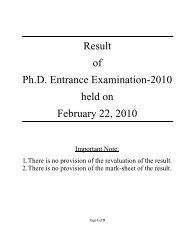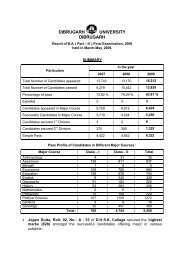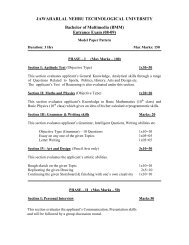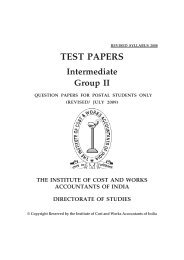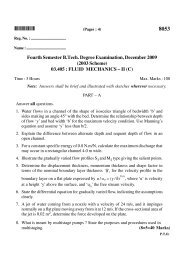Document file:///D|/Export1/www.netlibrary.com/nlreader/nlreader.dll ...
Document file:///D|/Export1/www.netlibrary.com/nlreader/nlreader.dll ...
Document file:///D|/Export1/www.netlibrary.com/nlreader/nlreader.dll ...
Create successful ePaper yourself
Turn your PDF publications into a flip-book with our unique Google optimized e-Paper software.
<strong>Document</strong><br />
Page 18<br />
sounds as if it must surely include a key role for economies of scale; but I have been unable to find a<br />
single reference to their role even an indirect one in his work. Indeed, when he offers an example of the<br />
process of circular causation, the external economies occur via the tax rate rather than any private<br />
market spillover.<br />
So it may be giving too much credit to our intellectual forerunners to think of 1950s development<br />
theory as involving a general appreciation of the way in which economies of scale at the individual<br />
plant level can aggregate to strategic <strong>com</strong>plementarity at the economy level. But at least some theorists<br />
seem to have understood the point quite clearly.<br />
Factor Supply<br />
Probably the most famous paper in all of development economics is Arthur Lewis's "Economic<br />
Development with Unlimited Supplies of Labor" (1954). In retrospect, it is hard to see exactly why.<br />
One interpretation of Lewis's argument is that the shadow price of labor drawn from the agricultural<br />
sector in developing countries is zero or at least low, so that the social return to investment in industry<br />
exceeds its private return. It was pretty obvious even early on, however, that this was a fragile basis on<br />
which to justify protection and promotion of industry.<br />
Why then was Lewis so influential? The key reason, I would argue, was that the surplus labor story,<br />
unlike many other development stories emerging at the time, could be formalized relatively easily; so it<br />
gave economists a way to follow the mainstream's increasing emphasis on rigor and formalism while<br />
continuing to do development. But it was also true that even though Lewis himself made no reference<br />
<strong>file</strong>:///<strong>D|</strong>/Export2/<strong>www</strong>.<strong>netlibrary</strong>.<strong>com</strong>/<strong>nlreader</strong>/<strong>nlreader</strong>.<strong>dll</strong>@bookid=409&<strong>file</strong>name=page_18.html [4/18/2007 10:29:59 AM]










